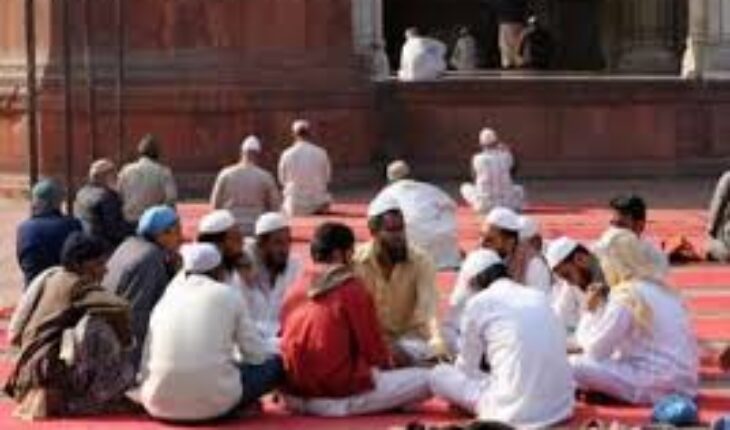India’s new criminal laws, presented as reforms, risk deepening systemic discrimination and eroding civil liberties with severe impacts on minority communities, especially Muslims.
by Nadeem Khan
The Indian government’s recent overhaul of criminal laws hailed as a revolutionary step forward threatens to erode civil liberties and minority rights. The changes presented as necessary updates to modernize the criminal justice system pose severe risks, particularly to the Muslim community. While the historical biases and systemic discrimination already plague India’s criminal justice system, the new laws could deepen these injustices.
Data from the National Crime Records Bureau (NCRB) and various human rights organizations paint a troubling picture of discrimination and arbitrary targeting. For instance, a significant Muslim population state of Uttar Pradesh in 2018 accounted for nearly half of all preventive detention cases in India. A study by the National Law University, Delhi, found that 74% of death row prisoners belong to backward classes and religious minorities, including Muslims. The figures reveal how deeply embedded these biases are within the criminal justice system.
The biased approach of law enforcement became glaringly evident during the Delhi Riots of 2020. Despite evidence of violence from both sides, the majority of those arrested were Muslims, reflecting a discriminatory stance by the authorities. This pattern extends to the misuse of the Unlawful Activities (Prevention) Act (UAPA).
Reports from Human Rights Watch and Amnesty International documented how investigations disproportionately targeted Muslims. Both organizations have reported how the UAPA has been used to detain individuals, particularly Muslims, without trial for extended periods. The data from the Ministry of Home Affairs revealing that nearly 75% of those arrested under UAPA between 2015 and 2018 were from minority communities, with Muslims being the most affected does not prove otherwise. The integration of the Unlawful Activities (Prevention) Act (UAPA)-like provisions into ordinary criminal law is alarming. This has led to concerns about the law being used to suppress dissent and target minority communities.
A study by the Centre for the Study of Developing Societies (CSDS) found that 50% of police personnel showed bias against Muslims. This bias not only influences how laws are enforced but also contributes to the discriminatory treatment of Muslims within the system. The pattern was observed during the CAA protest in 2020 in which prominent student activists and dissenting Muslim voices like Umar Khalid were suppressed. The arrest of journalist Siddique Kappan under UAPA while on his way to report the Hathras rape case is another example of misusing sedition and anti-terror laws to stifle dissent.
Further, mob lynching and hate crimes, particularly targeting Muslims have become a significant concern in India. The rise in such incidents is alarming and often linked to allegations of cow slaughter or beef consumption, deeply tied to religious and cultural sentiments. According to a 2019 report by IndiaSpend, 84% of those killed in cow-related violence from 2010 to 2017 were Muslims. Moreover, 97% of these attacks occurred after 2014, indicating a sharp rise in such incidents in recent years.
Victims of hate crimes, including mob lynching, face significant challenges in filing FIRs. Police reluctance, intimidation by perpetrators, and societal pressure all contribute to these difficulties. Human Rights Watch has documented numerous instances where police failed to register cases or conducted biased investigations.
The new Bhartiya Nagrik Suraksha Sanhita (BNSS) under Section 173 introduces the requirement for a preliminary inquiry before registering an FIR to verify a prima facie case. This requirement allows police to delay or refuse FIRs on the pretext of verifying a prima facie case. Filing FIRs has always been difficult, and the introduction of a preliminary inquiry requirement deepens these challenges. This could make it nearly impossible for victims of mob lynching and other hate crimes to get justice.
The 2017 lynching of Pehlu Khan despite clear video evidence faced significant delays and obstructions in filing the FIR illustrating systemic hurdles in prosecuting hate crimes. Police also showed reluctance to register an FIR against the perpetrators of Mohammad Akhlaq who was lynched in 20215 in Dadri of Uttar Pradesh. These are subtle examples of prejudices in law enforcement.
The lack of safeguards and oversight in the new laws compounds the issues of bias and discrimination. These laws fail to introduce adequate measures to prevent misuse, leaving room for arbitrary and biased application. The absence of robust oversight mechanisms means that these laws could be employed to target individuals based on their religious identity. The government must take immediate action to address these concerns, ensuring that the principles of justice and equality are upheld.
Nadeem khan is a human rights activist Associated with APCR and Spect Foundation. Views are Personal






